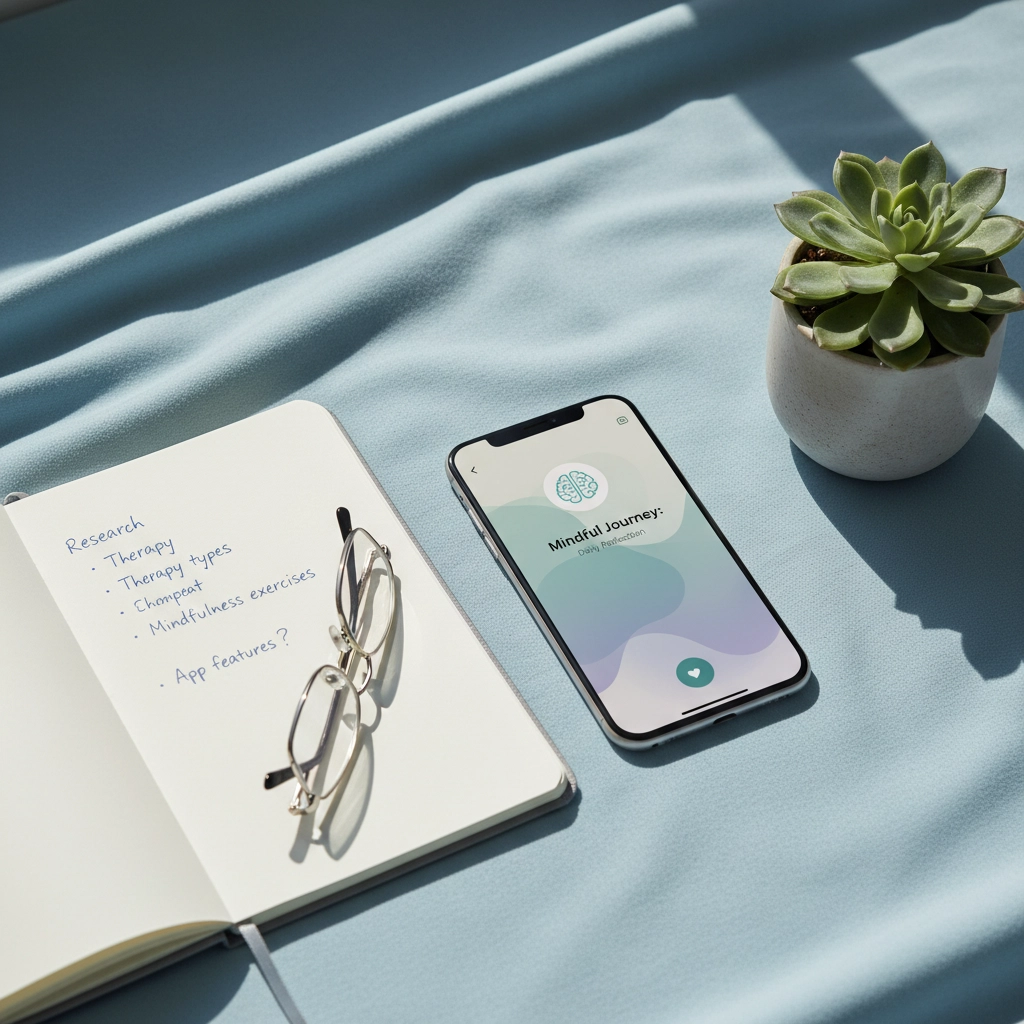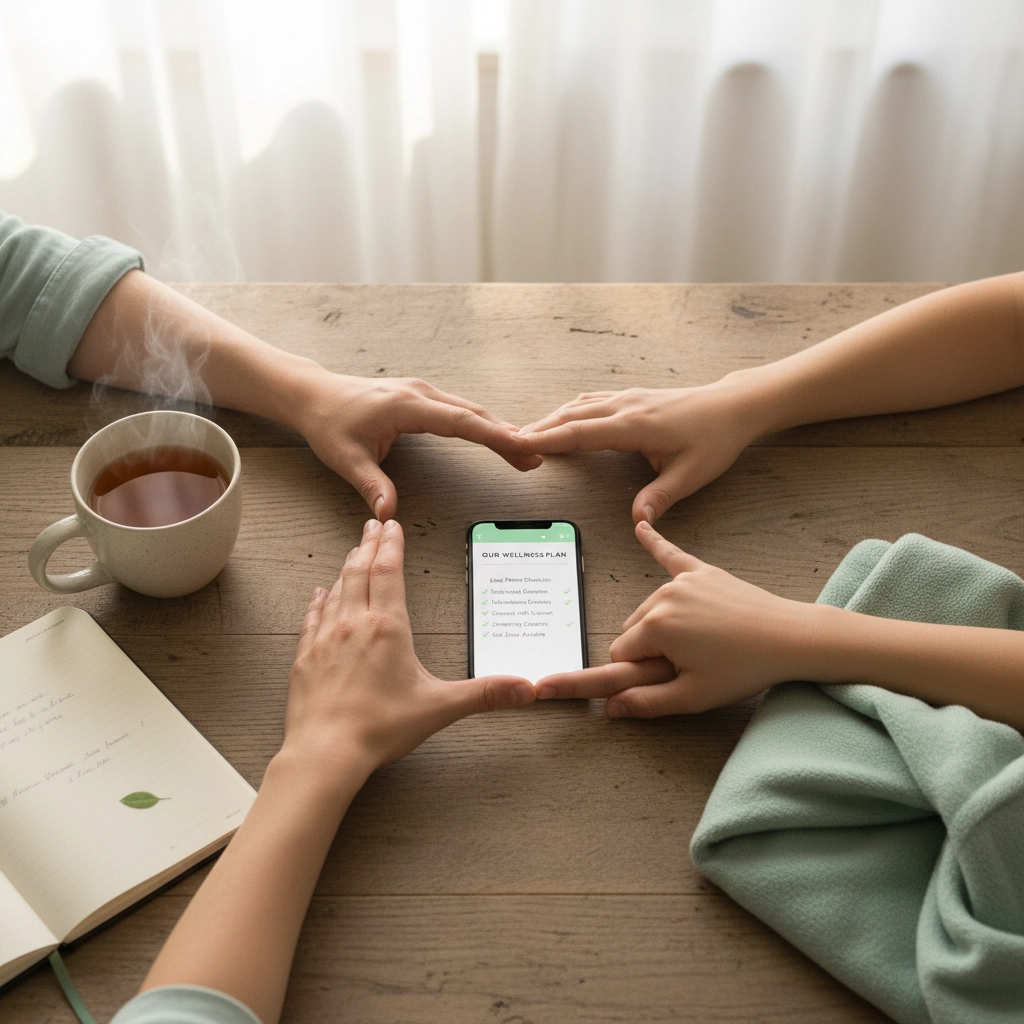7 Mistakes You're Making with AI Mental Health Apps (And How Chicago Families Are Using Them Safely)
- clairestew
- Sep 24, 2025
- 5 min read
Technology has transformed how we approach mental health, and AI-powered apps are now part of many families' wellness routines. Here in Chicago, we're seeing more parents and teens turn to these digital tools for support, especially when traditional therapy feels out of reach or overwhelming to access.
But here's what we've learned from working with families across Chicagoland: while these apps can be helpful, many people are using them in ways that could actually harm their mental health journey. The good news? Once you know what to watch for, these tools can become a valuable part of your family's support system.
The 7 Critical Mistakes We're Seeing
Mistake #1: Downloading Based on Marketing Claims Alone
Most families we talk with choose mental health apps the same way they'd pick a restaurant – based on reviews and flashy promises. But unlike choosing dinner, this decision affects your family's wellbeing.
The reality is that many AI wellness apps operate in a gray zone. They're not regulated like medical devices because they're marketed as general wellness tools rather than treatments for specific conditions. This means anyone can create an app and make bold claims about its effectiveness.
What Chicago families are doing instead: They're looking for apps with published research studies, not just testimonials. Before downloading, they ask: "Has this been tested in real clinical settings?" If the answer isn't clearly yes, they keep looking.

Mistake #2: Skipping the Fine Print on Privacy
We get it – privacy policies are boring. But when it comes to your family's mental health data, boring becomes critically important. Many families don't realize they're sharing deeply personal information that could be sold to advertisers or used in ways they never intended.
Mental health data is some of the most sensitive information you have. When an app knows about your teenager's anxiety patterns or your family's crisis moments, that knowledge needs robust protection.
What's working for local families: They've started treating app privacy policies like they would a medical consent form. They look for plain-language explanations, opt-out options, and clear statements about not selling data to advertisers.
Mistake #3: Choosing Apps Without Crisis Support
This might be the most dangerous mistake we see. When families are in crisis, they often turn to whatever digital support is immediately available. But many AI apps simply aren't equipped to handle true mental health emergencies.
Recent research found that while some apps screen for the word "suicide," they're not prepared for other expressions like "I want to hurt myself" or "I can't take this anymore." When someone reaches out in crisis and gets an automated response that misses the urgency, it can feel like one more door slamming shut.
The Chicago approach: Families are choosing apps that immediately connect users with the 988 Suicide & Crisis Lifeline or local Chicago crisis resources when any mention of self-harm is detected. Even better are apps that offer live human support during crisis moments.
Mistake #4: Using Apps as Therapy Replacements
Here's a pattern we see often: a family downloads a mental health app, feels some initial relief from having support available 24/7, then gradually stops pursuing professional help. This creates a concerning gap between what families think they're getting and what the apps actually provide.
AI apps are designed as wellness tools, not therapeutic treatment. They can't diagnose conditions, adjust medications, or provide the nuanced understanding that comes from a trained professional who knows your family's history.
How successful families use these tools: They treat AI apps like a bridge to professional care, not a replacement for it. The app might help their teenager practice coping skills between therapy sessions or provide support when motivation strikes at 2 AM, but licensed clinicians remain at the center of their care plan.

Mistake #5: Forming Unhealthy Attachments to AI
This one surprises many parents, but it's becoming increasingly common. AI mental health apps are designed to be engaging – sometimes too engaging. They learn user behaviors and adapt their responses to keep people coming back, which can create concerning emotional dependencies.
We've talked with teenagers who spend hours daily chatting with AI companions, preferring these interactions to real relationships. While the app feels safe and always available, this pattern can actually increase isolation rather than building genuine connection skills.
What we're seeing work: Families are setting clear boundaries around AI use. They create schedules for when and how long these apps can be used, with regular check-ins about whether the tool is helping or becoming a crutch that prevents real-world relationships.
Mistake #6: Ignoring Technical Red Flags
Many families overlook reliability problems that can actually undermine their mental health progress. Apps with unclear policies, unexpected charges, data losses, or broken features create frustration and erode trust exactly when families need stability most.
Imagine relying on an app for daily mood tracking, then losing weeks of data due to a technical glitch. Or expecting crisis support but finding broken links when you need help most urgently.
The local solution: Chicago families are taking time to test apps thoroughly during good days, not just downloading them during crisis moments. They're checking subscription terms, testing all features, and having backup plans in place.
Mistake #7: Skipping Professional Oversight
Perhaps the biggest oversight is not verifying whether licensed mental health professionals are involved in an app's development and ongoing oversight. Without human expertise, AI lacks the emotional intelligence and nuanced understanding needed for mental health support.
Even the most sophisticated AI can miss context clues, provide inappropriate advice, or fail to recognize when someone needs immediate professional intervention.
What's working: Families are choosing apps developed in partnership with licensed clinicians, preferably those who understand their local Chicago community's specific needs and resources.
Building a Safety-First Approach
The families who successfully integrate AI mental health tools into their wellness routines share some common practices:
They use comprehensive safety checklists. Before trusting any app, they verify it has peer-reviewed research, transparent privacy policies, crisis support pathways, professional oversight, and clear limitations.
They maintain human connections. AI becomes one tool in a broader support network that includes family, friends, therapists, and community resources like those we offer at MHAGC.
They research development teams. They look for transparency about what tools can and can't do, involvement of licensed professionals, clinical validation, and robust privacy protections.

Making It Work for Your Family
The key to safely using AI mental health apps lies in treating them like any other medical intervention. You wouldn't start a new medication without understanding its effects and limitations – the same principle applies here.
Start by asking yourself: Would I be comfortable if someone overheard this conversation with an AI? Do I have real people I can turn to if the app's advice feels wrong? Is this tool bringing me closer to professional help and human connection, or further away?
Remember, recovery and wellness aren't solo journeys. The most effective digital tools should complement, not replace, the relationships and professional support that form the foundation of good mental health care.
If your family is navigating mental health challenges, know that you don't have to figure this out alone. Whether you're exploring digital tools or seeking traditional support, we're here to help you find the resources that work best for your unique situation.
For immediate support, you can always call or text 988 for the Suicide & Crisis Lifeline, or contact us to learn more about our programs and services designed to support families throughout Chicagoland.

Comments